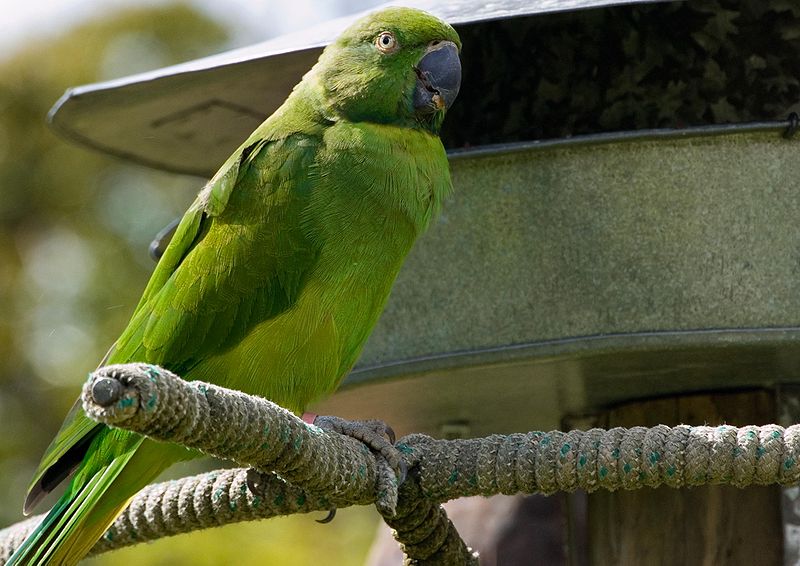 Parrot conservation news is usually dominated by stories covering large, popular species, such as African Greys, Black Palm Cockatoos and Amazons. While interest in these threatened birds is commendable, I also find it useful to focus my reading and writing on less well-known parrots and parrot habitats; for example, please see this article on Echo Parrot Conservation. Today I’d like to address parrot conservation concerns in India.
Parrot conservation news is usually dominated by stories covering large, popular species, such as African Greys, Black Palm Cockatoos and Amazons. While interest in these threatened birds is commendable, I also find it useful to focus my reading and writing on less well-known parrots and parrot habitats; for example, please see this article on Echo Parrot Conservation. Today I’d like to address parrot conservation concerns in India.
India’s Parrots and Parakeets
India is home to 12 parrot species, but, overshadowed by the needs of country’s tigers, rhinos and elephants, they have a hard time competing for public attention and funds. Adding to the problem, perhaps, is the popularity of the Indian Ring-Necked Parakeet, a hardy species that has established feral populations in such unlikely places as NYC. The fact that all of India’s wildlife is protected by law furthers the false sense of security. Read More »
 That Bird Blog – Bird Care and History for Pet Birds
That Bird Blog – Bird Care and History for Pet Birds

